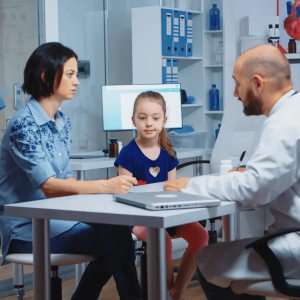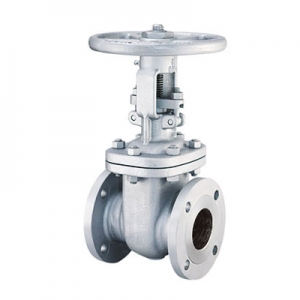In modern healthcare practices, managing patient payments and outstanding balances is crucial for maintaining financial stability. Accurate tracking, timely collections, and professional management of receivables can make a significant difference. Leveraging Accounts Receivable Services ensures that healthcare providers maximize cash flow while minimizing errors. When combined with professional Medical Billing Services, these solutions streamline the revenue cycle, improve patient satisfaction, and enhance operational efficiency.
What Are Accounts Receivable Services?
Accounts receivable services involve managing the money owed to a healthcare provider for services rendered. This includes:
-
Patient copayments and deductibles
-
Outstanding insurance claims
-
Payment follow-ups and collections
These services help practices maintain a steady cash flow, reduce administrative burden, and ensure compliance with financial and regulatory standards. Effective management of accounts receivable is essential for financial health and sustainability.
Importance of Accounts Receivable Services
1. Timely Collections
Proper accounts receivable management ensures that payments are collected promptly, reducing outstanding balances and improving cash flow.
2. Reduced Administrative Burden
Managing accounts receivable in-house can be time-consuming. Outsourcing or using specialized services reduces staff workload and administrative errors.
3. Compliance and Accuracy
Accounts receivable services ensure compliance with healthcare regulations and accurate tracking of payments, avoiding legal or financial penalties.
4. Enhanced Patient Communication
Clear, accurate billing and follow-up communications reduce confusion and improve patient satisfaction.
Key Components of Accounts Receivable Services
-
Billing Management – Preparation and submission of patient and insurance invoices.
-
Payment Posting – Recording payments from patients and insurance providers accurately.
-
Accounts Monitoring – Regular tracking of outstanding balances and aging reports.
-
Patient Follow-Up – Communicating with patients regarding overdue payments professionally.
-
Collections Management – Handling overdue accounts efficiently to maximize revenue.
-
Reporting & Analytics – Providing insights into payment trends, outstanding balances, and financial health.
Common Challenges in Accounts Receivable Management
Healthcare providers often face challenges such as:
-
Delayed Payments: Insurance or patient delays affect cash flow.
-
Errors in Billing: Mistakes in invoices lead to denied claims and slow collections.
-
High Administrative Load: Managing accounts manually consumes staff time.
-
Patient Confusion: Complex bills can frustrate patients and delay payments.
-
Compliance Issues: Failing to adhere to financial regulations can result in penalties.
How Accounts Receivable Services Solve These Challenges
1. Expertise and Accuracy
Professional services employ trained staff to ensure accurate billing, reducing claim denials and errors.
2. Timely Follow-Ups
Regular monitoring and patient communication ensure overdue accounts are addressed promptly.
3. Technology Integration
Advanced software tracks payments, generates aging reports, and automates reminders to patients, enhancing efficiency.
4. Compliance Assurance
Professional services ensure adherence to HIPAA and financial regulations, minimizing risk.
5. Improved Revenue Cycle
Accounts receivable services optimize cash flow by streamlining the billing and collection process.
Relationship Between Accounts Receivable and Revenue Cycle
Accounts receivable is a critical component of the healthcare revenue cycle. Efficient management ensures:
-
Reduced outstanding balances
-
Faster reimbursements
-
Lower administrative costs
-
Increased operational efficiency
By integrating Medical Billing Services with accounts receivable management, practices can achieve a seamless workflow, ensuring both patient satisfaction and financial stability.
Technology in Accounts Receivable Services
Modern accounts receivable services leverage technology to improve efficiency:
-
Automated Billing Software: Generates accurate invoices and tracks payments.
-
Patient Portals: Allow patients to view bills, make payments, and set up payment plans.
-
Analytics & Reporting: Provides insights into collections, payment trends, and financial health.
-
Automated Reminders: Email and SMS reminders reduce overdue accounts.
These tools enhance transparency, accuracy, and patient engagement.
Benefits of Outsourcing Accounts Receivable
Outsourcing accounts receivable management offers several advantages:
-
Cost Savings: Reduces in-house staffing and associated overhead.
-
Expertise: Access to trained professionals who specialize in healthcare finance.
-
Scalability: Easily adapts to fluctuations in patient volume.
-
Enhanced Accuracy: Reduces errors and denied claims.
-
Focus on Patient Care: Allows providers to prioritize clinical services rather than administrative tasks.
Financial Impact of Accounts Receivable Services
Proper accounts receivable management directly impacts financial health:
-
Reduced Days in Accounts Receivable: Faster collections improve cash flow.
-
Lower Claim Denials: Accurate billing reduces rejected claims.
-
Increased Revenue: Efficient collections maximize reimbursements.
-
Operational Efficiency: Staff can focus on core functions rather than chasing payments.
Best Practices for Effective Accounts Receivable
-
Regular Monitoring: Keep track of outstanding accounts and aging reports.
-
Accurate Billing: Ensure invoices are precise and complete.
-
Prompt Patient Communication: Notify patients early about their balances.
-
Integration with Billing Services: Align accounts receivable with overall billing processes.
-
Leverage Technology: Use software tools for automation, reporting, and reminders.
Future Trends in Accounts Receivable Management
-
AI-Powered Analytics: Predict overdue accounts and improve collection strategies.
-
Remote Financial Services: Enable flexibility and cost savings through cloud-based solutions.
-
Patient-Centric Billing: Focus on transparency, easy online payments, and self-service options.
-
Integrated Financial Workflows: Seamless integration with EHRs and billing systems enhances accuracy.
These trends ensure that accounts receivable management evolves with the changing healthcare landscape, improving both efficiency and patient satisfaction.
Final Thoughts
Efficient Accounts Receivable Services are essential for maintaining financial health, reducing errors, and improving patient satisfaction. By integrating these services with comprehensive Medical Billing Services, healthcare providers can streamline revenue cycles, ensure timely reimbursements, and minimize administrative burdens. Investing in professional accounts receivable management is crucial for sustaining growth and delivering high-quality patient care.
FAQs
Q1. What are accounts receivable services?
Accounts receivable services manage the money owed to healthcare providers, including patient and insurance payments.
Q2. How do these services benefit healthcare providers?
They improve cash flow, reduce administrative workload, minimize errors, and enhance compliance.
Q3. Can accounts receivable services improve patient satisfaction?
Yes, by providing clear, accurate billing and professional communication, patients experience less confusion.
Q4. Is outsourcing accounts receivable a good option?
Outsourcing ensures expertise, accuracy, cost savings, and allows providers to focus on patient care.
Q5. How does technology enhance accounts receivable services?
Automation, patient portals, and analytics improve accuracy, efficiency, and transparency in collections.










